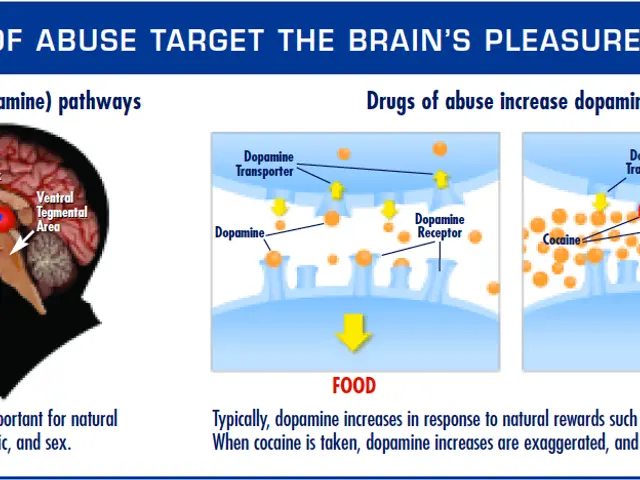Increasing physical activity may lead to reduced health issues and extended lifespan
In a groundbreaking study, an international research team delved into the link between physical activity patterns and lower risks of death from various causes, such as cardiovascular disease and cancer. The study, published up to April 2024, analysed 85 studies in English, with participant sample sizes ranging from 357 to 6,572,984.
The findings unequivocally highlight the benefits of regular physical activity. Consistently active people had an estimated 30-40% lower risk of dying from any cause, while those who increased their levels of activity from below recommended for good health saw a 20-25% lower risk. The associations between a high level of physical activity and a lower risk of death were more evident for cardiovascular disease than for cancer.
But what about those who are not currently exercising regularly? Fear not, for even minimal physical activity is better than none, according to the researchers. A simple yet effective way to start could be by adding a brisk 30-minute morning or evening walk to your daily routine at least a few times a week. If motivation is a problem, consider taking your phone with you to listen to music, an audiobook, or a podcast while you walk.
Interestingly, the study suggests that switching to a more active lifestyle at any point in adulthood may extend lifespan, and it's never too late to start. In fact, switching from physical inactivity to a more active lifestyle was associated with a 22% lower risk of death from any cause.
The benefits of an active lifestyle extend beyond mortality rates. Regular physical activity is linked with decreased risk of noncommunicable diseases such as diabetes, obesity, and hypertension. It also improves psychological well-being, reducing morbidity across a wide variety of health conditions, with benefits seen irrespective of age or the type of physical activity performed.
Physical activity also plays a crucial role in maintaining cognitive health. Research shows aerobic exercise improves executive function in adults, which encompasses cognitive processes important for planning, problem-solving, and impulse control. This contributes to maintaining cognitive health during aging and counters decline associated with sedentary behavior.
Moreover, regular physical activity supports reduced chronic inflammation, improved inflammation markers, enhanced executive cognitive functions, better physical fitness, and improved blood sugar control. A systematic review and meta-analysis specifically found that aerobic exercise training in older adults significantly reduced inflammatory markers such as IL-6, CRP, and TNF-α, while increasing anti-inflammatory IL-10, indicating improved immune and inflammatory responses that reduce risks related to chronic inflammatory diseases.
In sum, increasing physical activity in adulthood supports reduced chronic inflammation and improved immune function, lower risk of major chronic diseases, enhanced mental health and psychological well-being, better cognitive function, improved physical fitness, and improved metabolic health. These benefits underscore the importance of engaging in regular moderate to vigorous physical activity across the adult lifespan.
So, whether you're a seasoned athlete or just starting out, remember that every step counts. Walking doesn't require a gym, and the only equipment you'll need is a pair of sneakers. Embrace an active lifestyle today and potentially extend your lifespan for tomorrow.
Engaging in regular physical activity as part of a health-and-wellness routine can significantly lower the risk of mortality from various causes, including cardiovascular disease and cancer. For those yet to adopt a fitness-and-exercise regimen, even minimal activity can have positive effects, such as adding a brisk walk to one's daily routine, which may help reduce risks related to chronic diseases and improve overall wellness.





